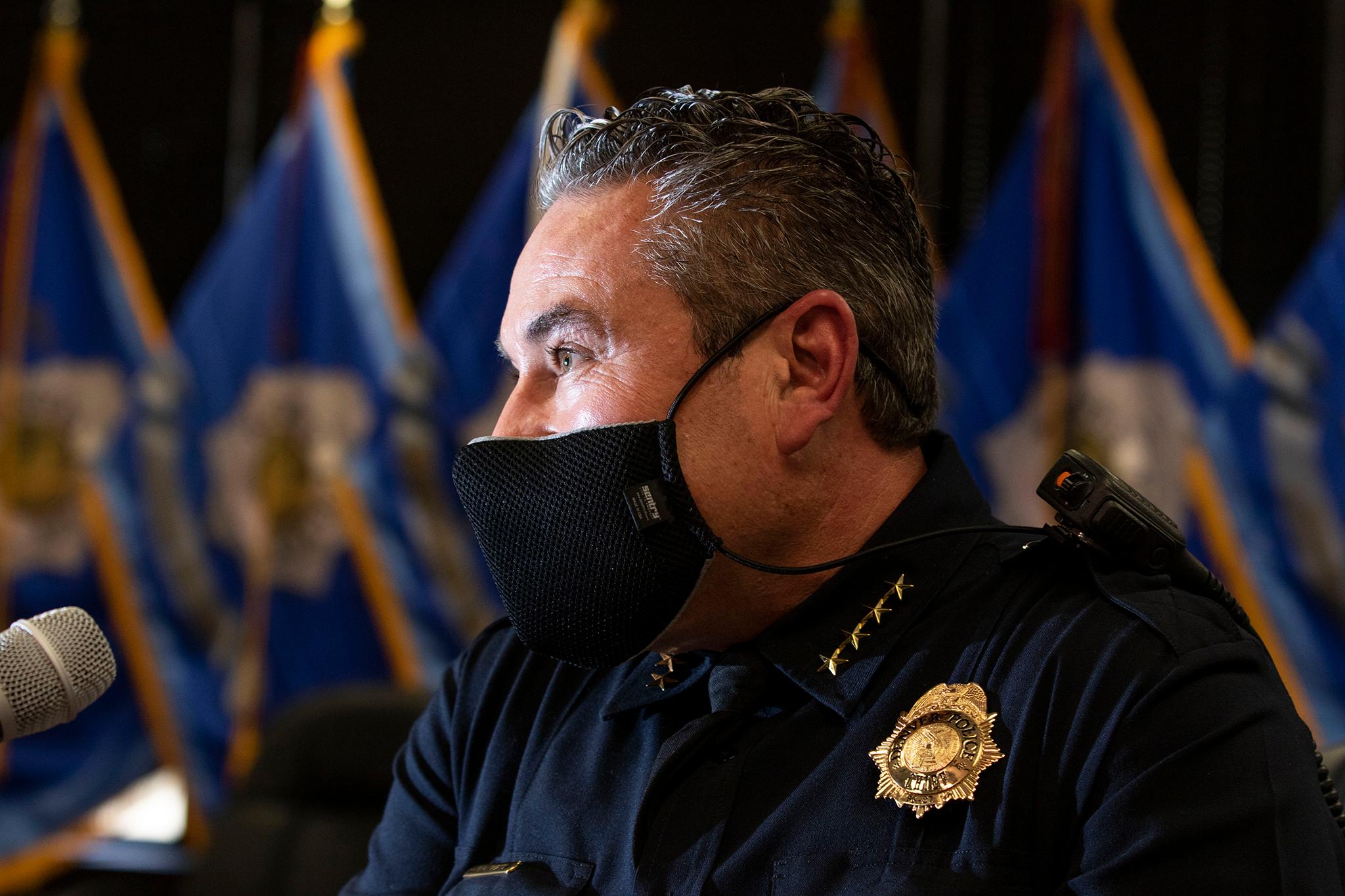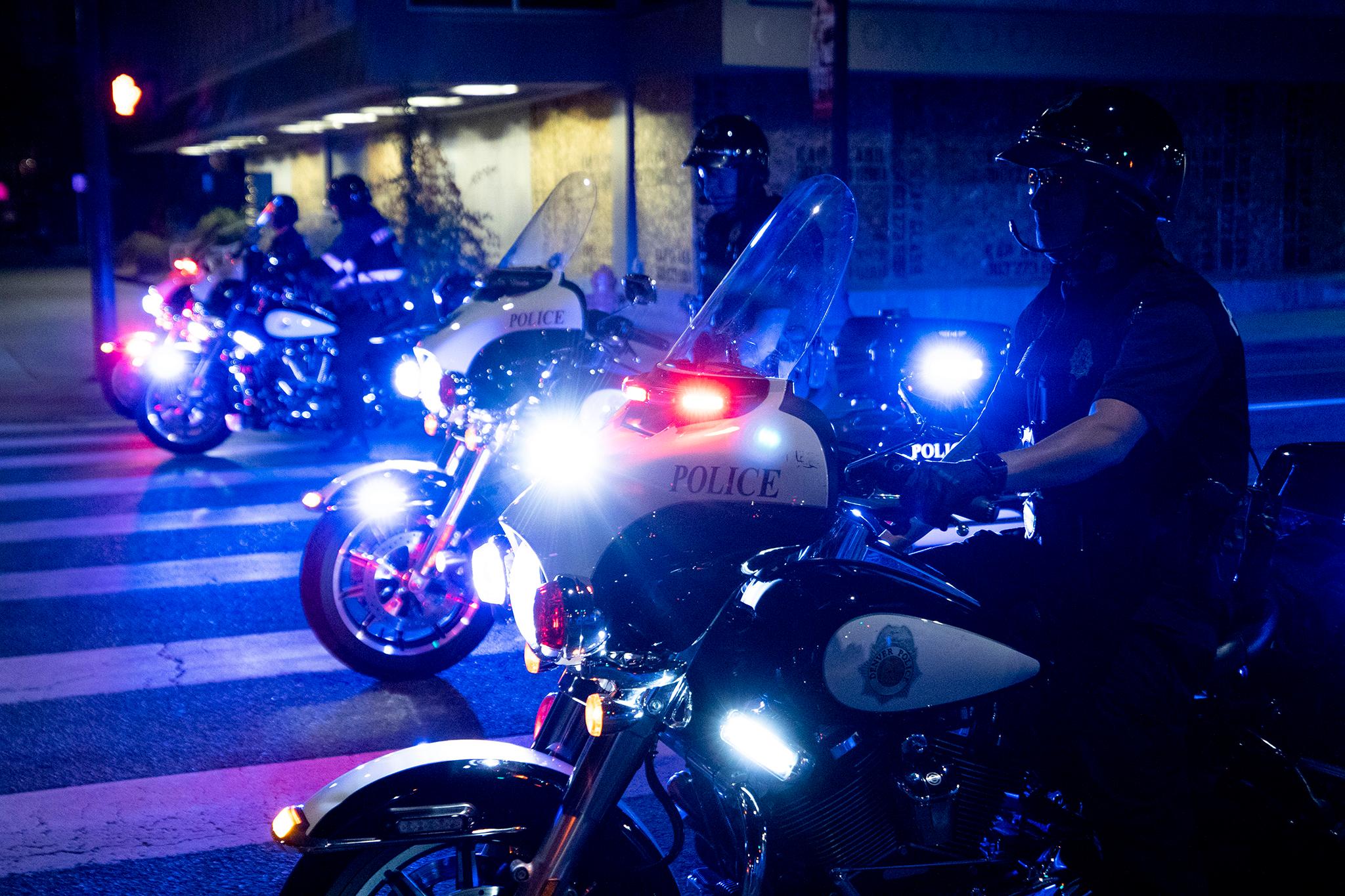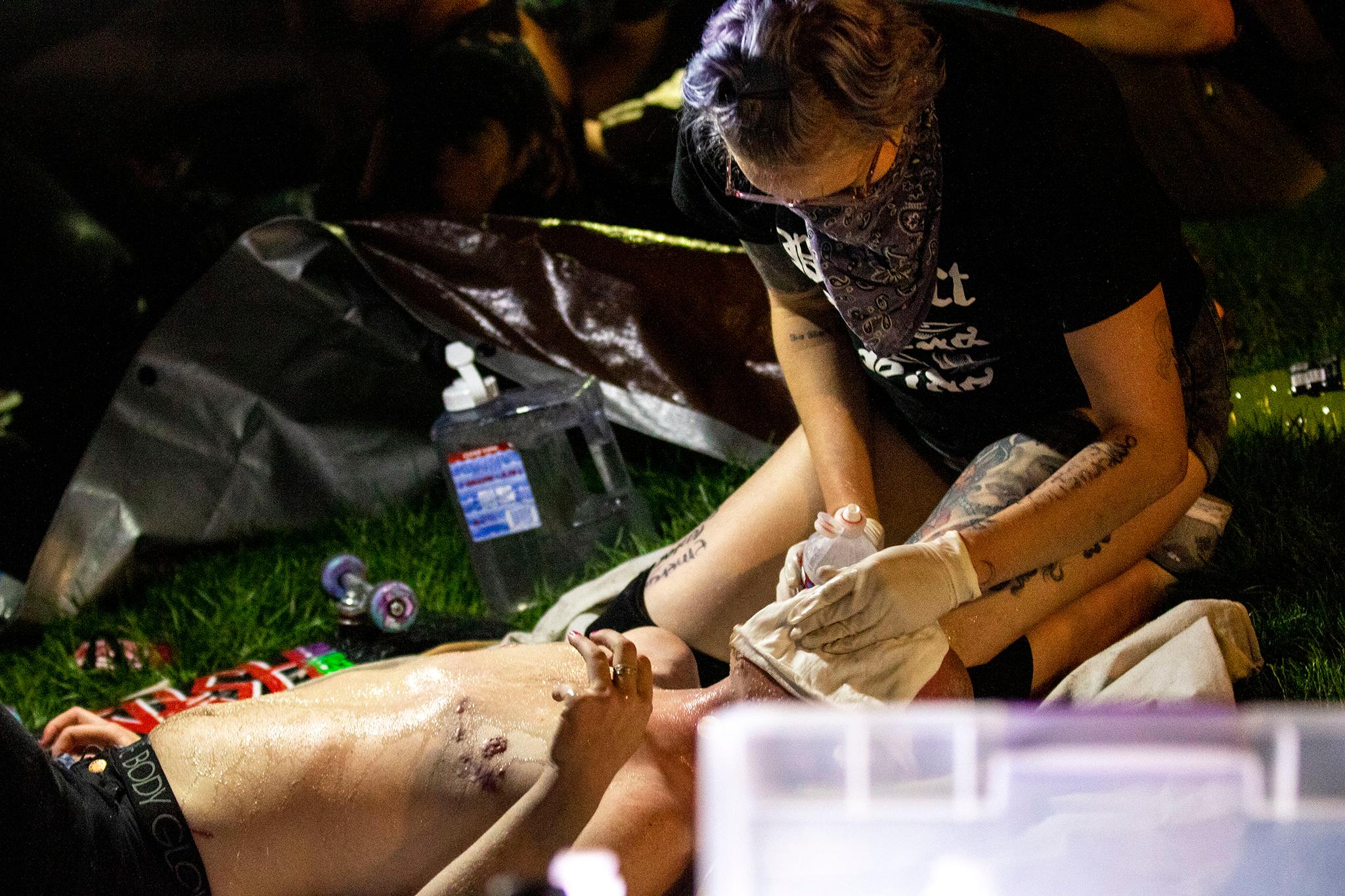A new report elevates concerns from the public about the number of misconduct cases resulting in discipline for Denver police during the George Floyd protest.
The report by the Citizen Oversight Board, the group tasked with appointing the city's top law enforcement watchdog, was made public last month, but a presentation on its findings is scheduled to be given to a Denver City Council committee on Wednesday. The 20-page report includes an overview of the city's law enforcement system, updates on department policy and practice changes, and data on its work reviewing civilian complaints.
According to the report, which the COB is required to issue annually, residents have expressed disappointment with the lack of discipline for police officers facing misconduct allegations from the 2020 protests.
Of the 127 protest-related cases opened by the public safety department, 116 have been cleared and 11 are still open and under the review process, according to public safety department records administrator Andrea Webber. No cases resulted in criminal charges. The 116 closed cases involved 156 allegations, Webber said over email.
At least five cases resulted in some sort of reprimand for cops. Cases belonging to three officers -- Jesse Trudel, Derek Streeter and Diego Archuleta -- resulted in multi-day suspensions. One officer, Scott Hughes, got a written reprimand and another, Mike O'Neill, got an oral reprimand, according to information provided by Webber.
Last month, a jury ordered the city to pay 12 protesters $14 million in damages over police misconduct during the protests. During a meeting with the board last Friday, Denver police chief Paul Pazen told lawmakers he wouldn't comment on the jury's decision.

He said one of the reason there were still open cases left is that the public safety office "did a very thorough review, and that's the right thing to do overall."
Citizen Oversight Board chair Julia Richman said the court-ordered settlement is a reminder that conversations about police reform are far from over.
"You can have reform while also doing a good job keeping people safe in the city," Richman said.
Other concerns the public brought to the board's attention include poor food service provided by Aramark, which is contracted by Denver Sheriff's Department to provide food in the city's jail.
Living conditions and medical treatment provided by the city's jail were also a point of concern.
The report noted the board got "numerous" concerns from the public about the establishment of the Street Enforcement Team, which is comprised of civilians that can ticket people for minor offenses.
"Concerns shared with the Board may stem from a distrust of the DOS, assumptions about the team's priorities and methods, and a lack of clarity about the team and its relationship to other government entities interacting with individuals experiencing homelessness," the report reads.
Richman said the report shows how long it takes to make changes in the public safety department. For example, the board has been recommending certain changes, like clarifying the internal affairs disciplinary process, for nearly 10 years. Richman said the entire process can be "circular and convoluted" and leads to a lack of accountability.

"It's willful incompetence at some point," Richman said.
There were fewer complaints from citizens against police in 2021 because there were fewer contacts between police and residents, the report said. Last year saw 588 citizen misconduct complaints for police and sheriffs, down from 724 in 2020 and 689 in 2019.
The COB appoints the head of the Office of the Independent Monitor, a seat that has been vacant since Jan. 4, 2021.
Gregg Crittenden has served as the interim monitor. The board announced in March it had restarted its search for the next independent monitor after three finalists were named but none were hired.
Richman said the board is finalizing a contract with a recruiting company with experience recruiting for this position. A seven-member hiring committee will oversee the hiring process. If it all goes as planned, Richman said the city's next independent monitor should start by the fall.
The Office of the Independent Monitor was established in 2004 after the death of Paul Childs, a developmentally disabled teen who was fatally shot by Denver police in July 2003. The office was one of several reforms demanded by the public following his death, according to the report.













